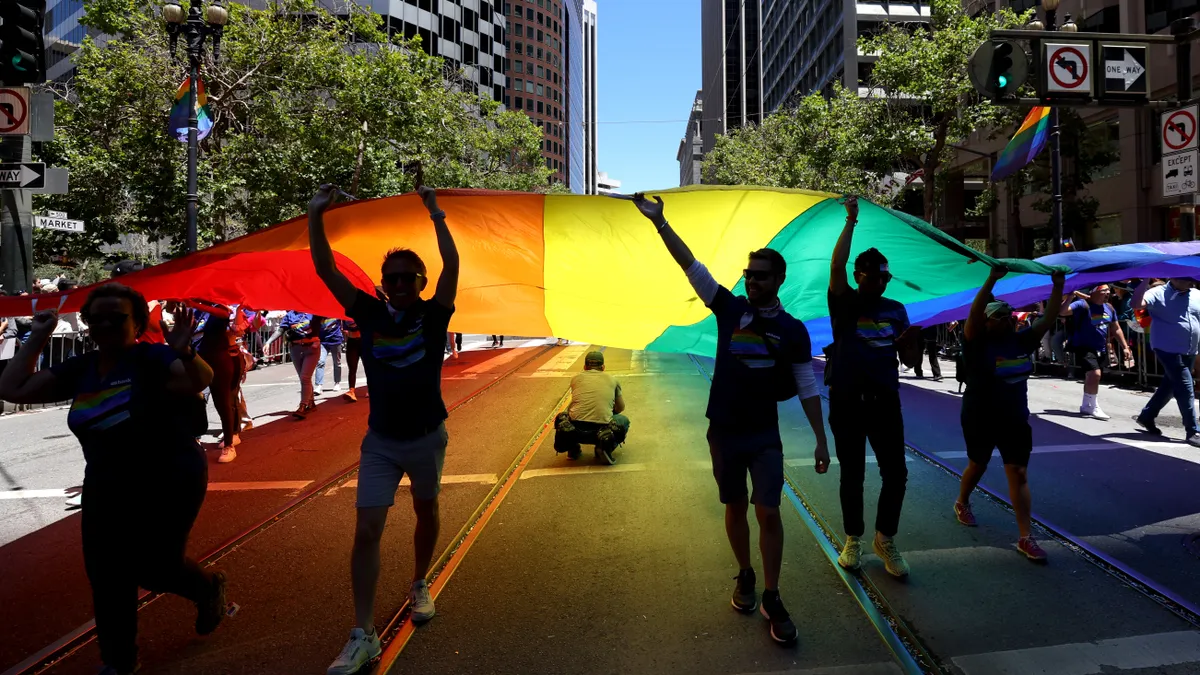With Pride month kicking off next week, HR professionals should consider several steps to advance belonging while mitigating legal risk, management-side law firms advised in recent days.
June often brings workplace LGBTQ+ awareness activities, parade sponsorships and more, but this year may well look different because of executive orders aimed at curbing diversity, equity and inclusion programs.
Of particular concern for many employers is a January executive order calling for federal agencies to target “unlawful” DEI programs.
Early guidance from one agency indicated that cultural observances may not necessarily be a target, lawyers with Ballard Spahr noted earlier this year.
Still, some have urged caution until more guidance becomes available. “[W]ith ‘unlawful DEI’ undefined in the EOs or otherwise, whether celebrations or education fall within that undefined term remains to be seen and will be highly fact-specific,” Ogletree Deakins attorneys said in an analysis.
That means cultural celebrations, acknowledgments and educational programs in the workplace “present thornier issues today,” they said.
Plan ahead
Preparation starts with asking the right questions, according to the Ogletree attorneys. They advised employers to consider whether federal funds might be used to pay for such activities, how the optics may affect employees, whether the organization celebrates other cultures and holidays, and the organization’s risk tolerance, among other factors.
Employers should also plan to ensure all activities are voluntary and not exclusionary, they said.
Communication also is key, according to attorneys for another firm, Seyfarth Shaw. The risk of employee anger — from several directions — is high, they said in an analysis; and that anger can lead to calls for unionization or lawsuits alleging religious or gender discrimination. Employers can train HR and managers to watch for issues and deescalate any tension, they said.
Lead with inclusion
While Pride Month recognizes LGBTQ+ employees, it also can be an opportunity to reinforce that all employees have the right to feel included, respected and valued in the workplace, according to the Seyfarth Shaw analysis.
“This point can be further developed by demonstrating that Pride Month is not about disseminating special benefits to one group,” they suggested, “but rather about ensuring that all employees have the same opportunities and are entitled to a work environment free of discrimination.”















